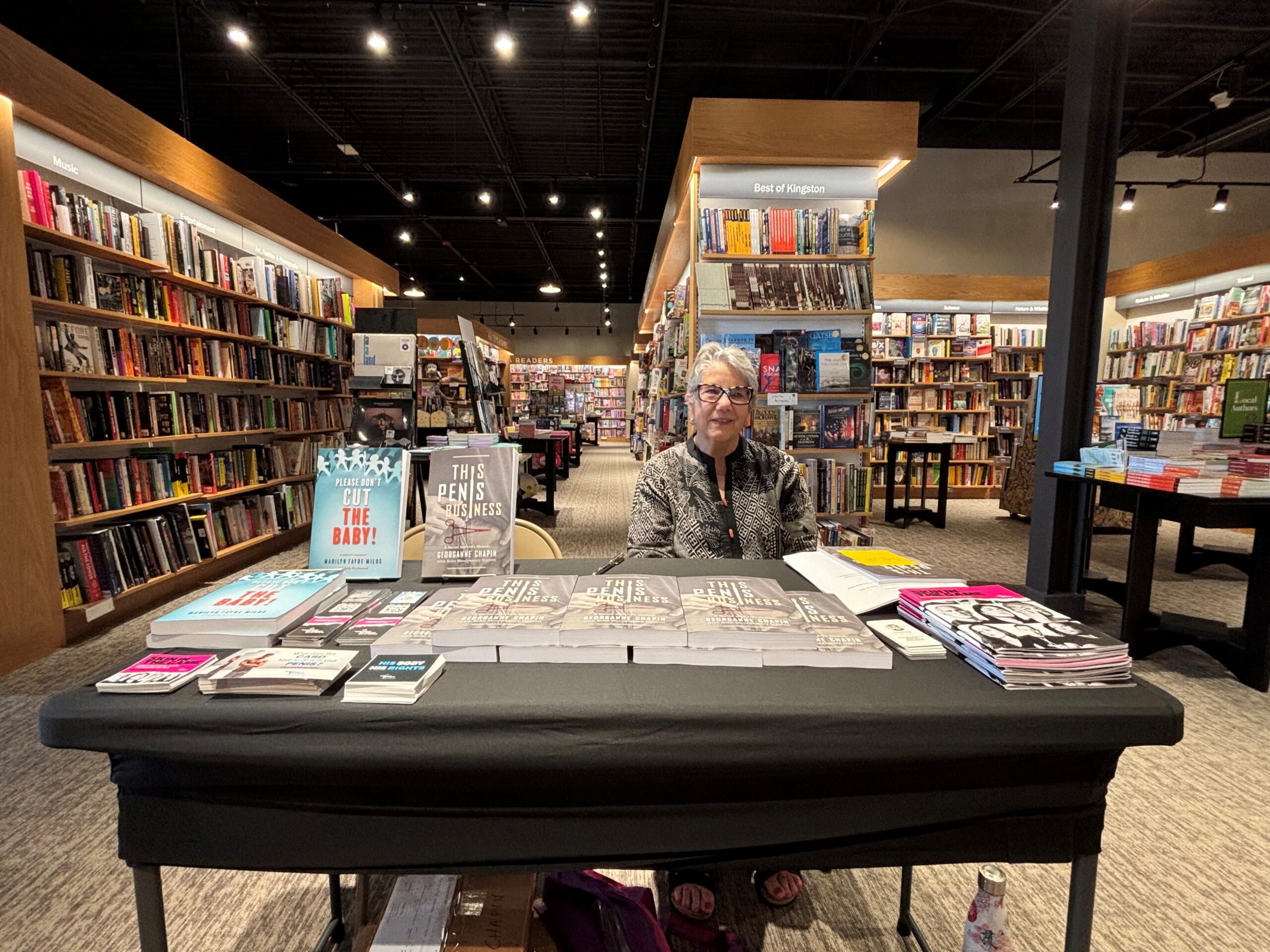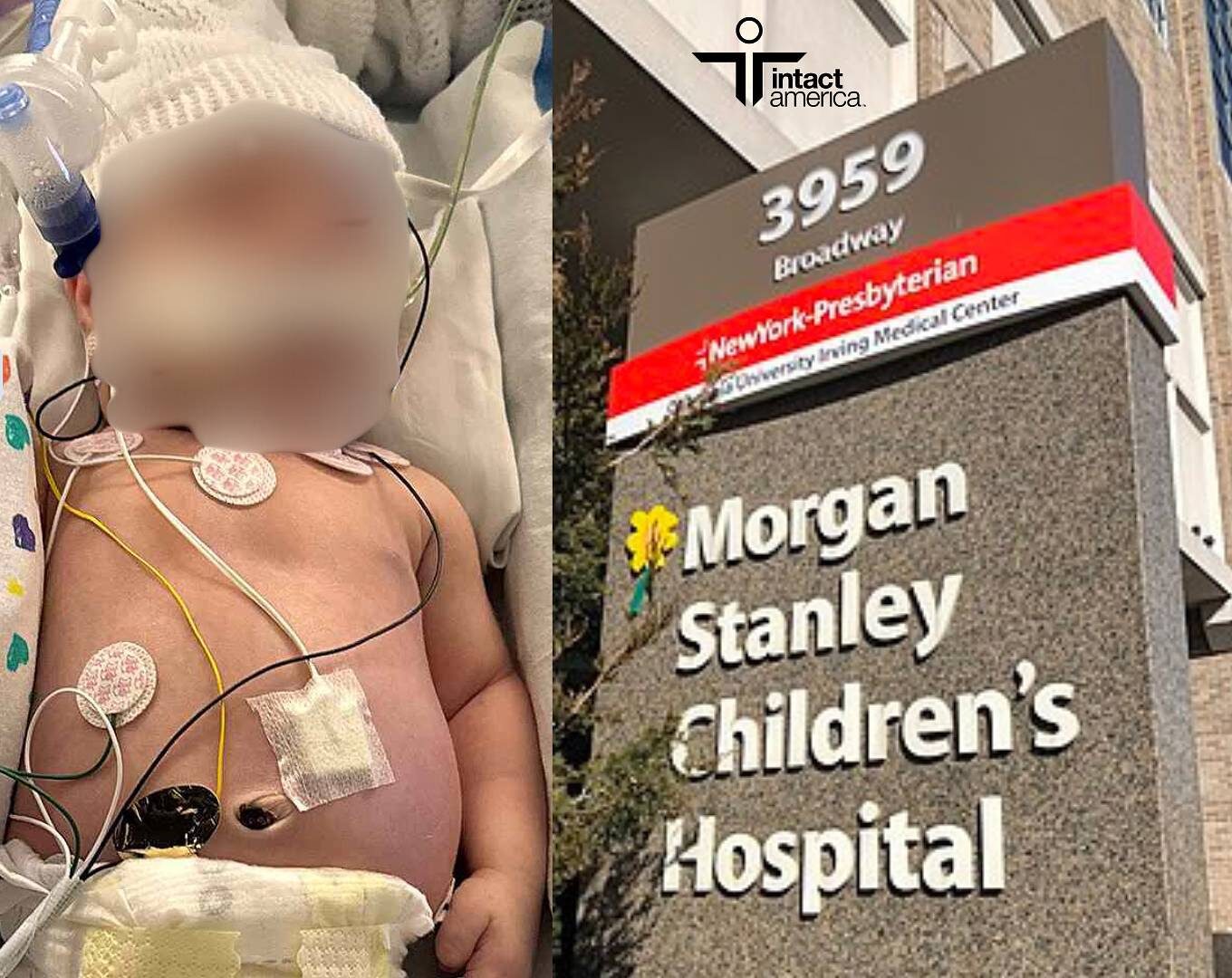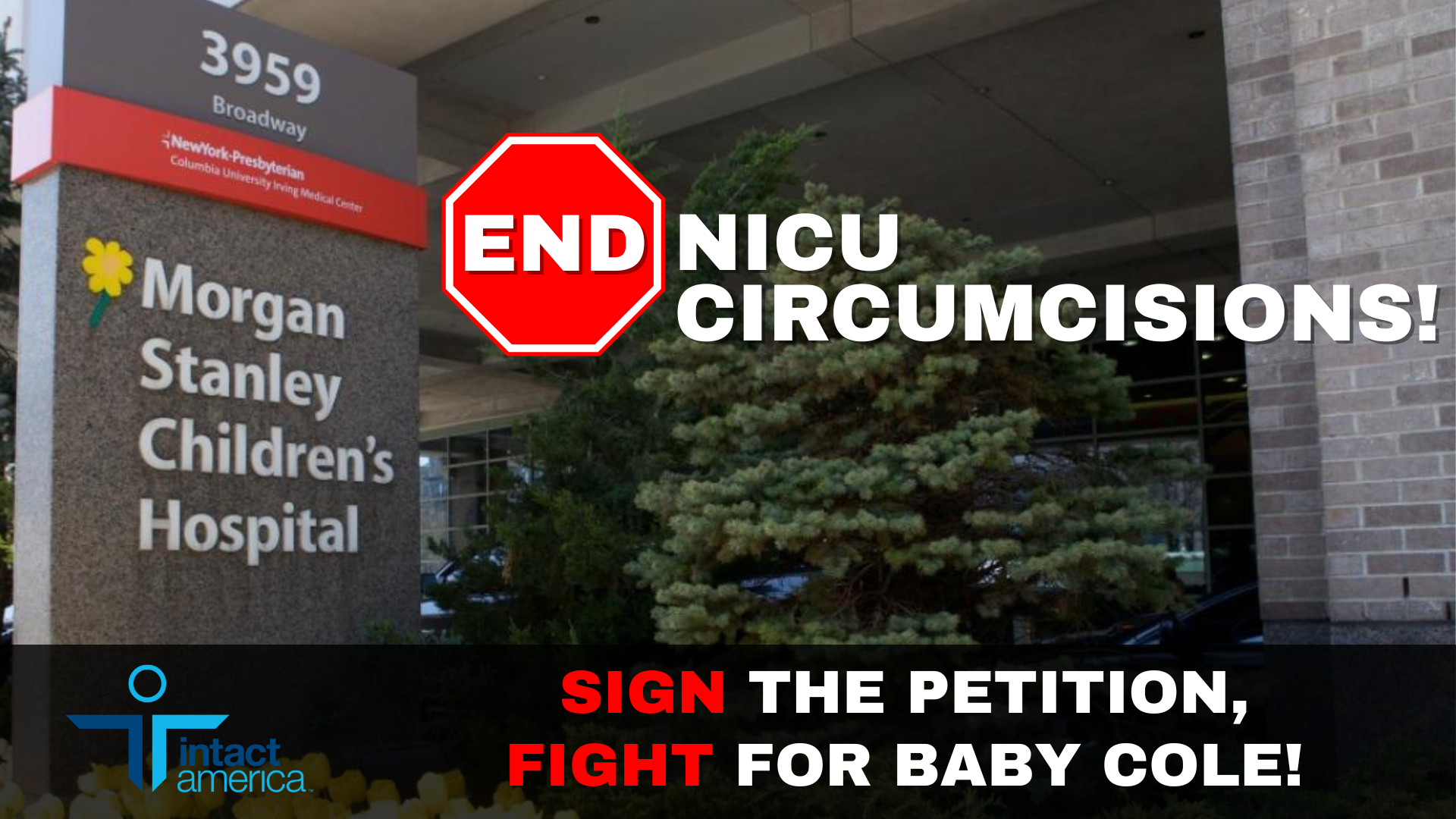JANUARY 2015: This month, Intact America honors Dan Strandjord. He’s the man popularly known around the University of Chicago Medical Center as the Foreskin Guy. For the past decade, every weekday, Dan has stood with his sign—a one-man, constant protest against that institution’s participation in the circumcision industry.
Dan was born in Maryland and grew up in Chicago. As a young boy, he experienced an inappropriate genital examination by a University of Chicago pediatrician—something that affected him for many years.
Becoming aware of the intactivist movement galvanized Dan into becoming an active opponent of the practice that had harmed him. “I was finally able to start dealing with my lifelong issues about circumcision in late 1998,” he says. The next spring, Marilyn Milos organized a national meeting about the 1999 American Academy of Pediatrics (AAP) circumcision policy in Chicago, where the AAP headquarters is located. “I met an amazing group of people who were excited to do something to protect children and I realized that we must do more to make the issue known.”
Over the next few years, Dan began speaking out, but found little support from the institution that had been at least partly responsible for the violation of his human rights. The motto of the University of Chicago Medical Center, Dan points out, is “At the Forefront of Medicine.” Yet that institution has the highest rate of infant circumcision in the city—more than double that of other hospitals.
The straw that broke the camel’s back was in 2004 when Dan asked Susan Gzesh, executive director of the University of Chicago Center for Human Rights, if he could speak with her about genital integrity for all children—male, female and intersex—and she refused. “She said, ‘I know what you’re going to say; I don’t agree with you; and I’m not going to talk with you about it,'” Dan recounts.
“So I said, I’m going to talk with anybody who WILL talk with me, then, and I’ll do it out in the street!”
In June 2004, Dan started standing in front of that institution’s medical center, protesting circumcision. For more than a decade, every weekday, weather permitting, Dan is there for an hour or two.
The first time people see me, they can’t believe someone is out there doing this, says Dan. “Most of the people who do come to talk to me, already agree with me. [But] this is a topic that you have to think about for a while, and so even if people don’t stop to talk, they see the signs. They have to think about it. That really helps to keep me doing this, because I know I’m making a difference I know I’m affecting even the people who haven’t stopped to talk with me. I’m also delighted to be called Foreskin Guy—I WANT people to talk about me. Because even if they tell somebody that I must be a crazy old man, somebody might say, “Well, maybe he’s got something there!”
Georganne Chapin, executive director of Intact America, agrees. “The importance of speaking out in public about the travesty of forced circumcision cannot be overstated,” she says. “Dan’’s decade-long protest is a most unique and powerful testament to the importance of the issue that the University of Chicago fails to address.”
Later this month, Dan will be retiring to Aurora, Colorado. He will be leaving his post at the medical center, but plans to find new ways to work for the intactivist cause.
About Intact America, Dan says, “I’m so glad that we now have an organization whose main function is to be out front and speak out loudly about protecting children by sending a clear message that foreskin is not a birth defect and that every male has a right to all the functions and pleasure that his body was designed for.”
“I’m very optimistic. I’’m on the right side of history with this.”
[sc name=”IOTM”]






